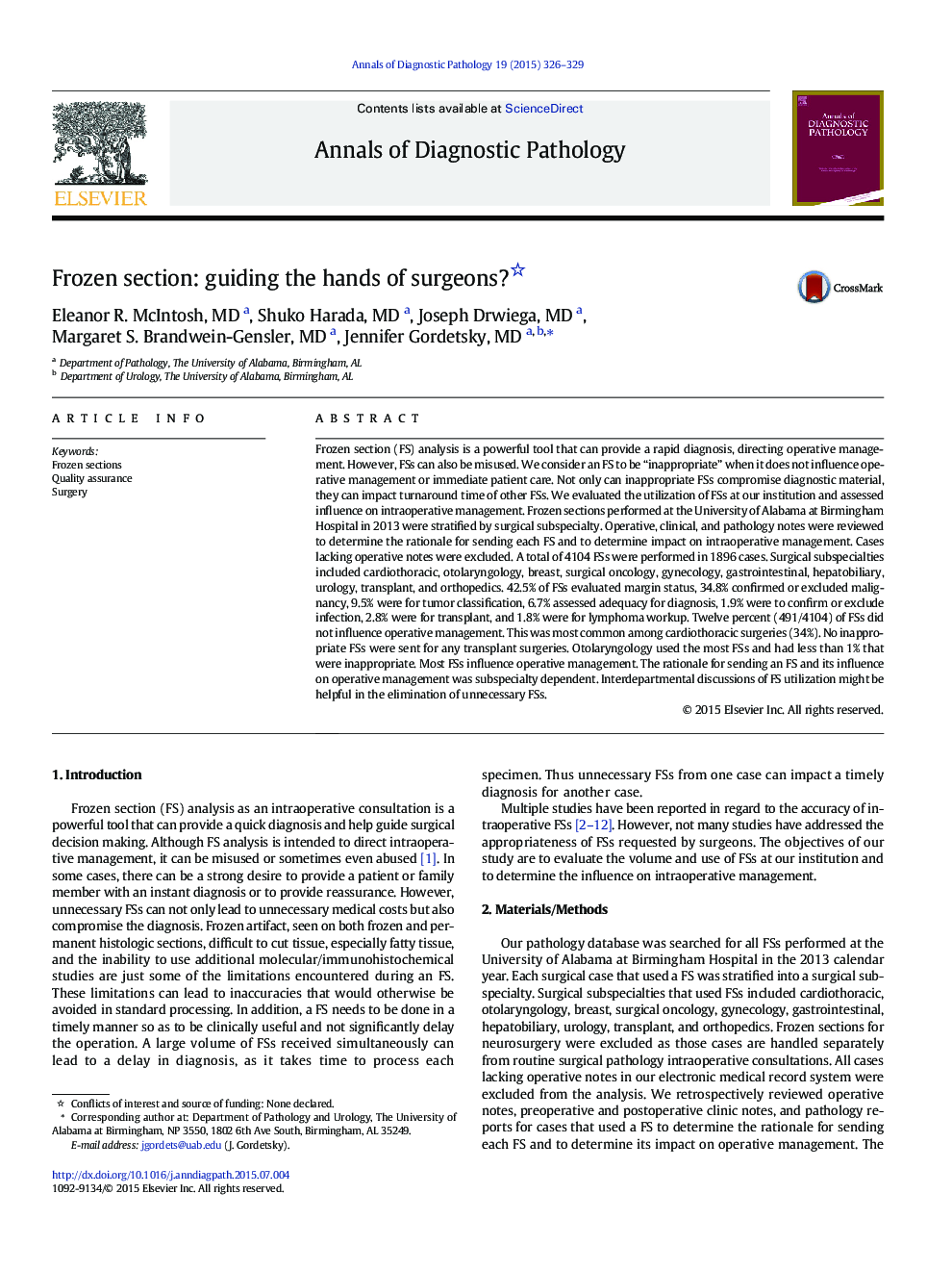| Article ID | Journal | Published Year | Pages | File Type |
|---|---|---|---|---|
| 4129892 | Annals of Diagnostic Pathology | 2015 | 4 Pages |
Frozen section (FS) analysis is a powerful tool that can provide a rapid diagnosis, directing operative management. However, FSs can also be misused. We consider an FS to be “inappropriate” when it does not influence operative management or immediate patient care. Not only can inappropriate FSs compromise diagnostic material, they can impact turnaround time of other FSs. We evaluated the utilization of FSs at our institution and assessed influence on intraoperative management. Frozen sections performed at the University of Alabama at Birmingham Hospital in 2013 were stratified by surgical subspecialty. Operative, clinical, and pathology notes were reviewed to determine the rationale for sending each FS and to determine impact on intraoperative management. Cases lacking operative notes were excluded. A total of 4104 FSs were performed in 1896 cases. Surgical subspecialties included cardiothoracic, otolaryngology, breast, surgical oncology, gynecology, gastrointestinal, hepatobiliary, urology, transplant, and orthopedics. 42.5% of FSs evaluated margin status, 34.8% confirmed or excluded malignancy, 9.5% were for tumor classification, 6.7% assessed adequacy for diagnosis, 1.9% were to confirm or exclude infection, 2.8% were for transplant, and 1.8% were for lymphoma workup. Twelve percent (491/4104) of FSs did not influence operative management. This was most common among cardiothoracic surgeries (34%). No inappropriate FSs were sent for any transplant surgeries. Otolaryngology used the most FSs and had less than 1% that were inappropriate. Most FSs influence operative management. The rationale for sending an FS and its influence on operative management was subspecialty dependent. Interdepartmental discussions of FS utilization might be helpful in the elimination of unnecessary FSs.
